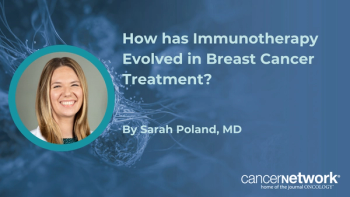
Sugar Boosts Mammary Tumor Growth, Metastasis in Mice Study
Mice fed sugar at levels comparable to those in a typical Western diet had greater tumor growth and metastasis compared to mice fed a starch-based, no-sugar diet.
Mice fed sugar at levels comparable to those in a typical Western diet had greater tumor growth and metastasis compared with mice fed a starch-based, no-sugar diet. The
The new study supports the notion that consumption of high amounts of sugar can increase the risk of breast cancer and its metastasis to the lungs. Further animal and human studies are needed to confirm these observations.
High levels of dietary sugar consumption have been linked to the development of breast cancer in epidemiological studies, yet a direct cause-and-effect relationship has not been established nor has a mechanism of how ingested sugar can affect cancer development.
Researchers used a mouse model to investigate the role of 12-LOX (12-lipoxygenase), an enzyme involved in lipid metabolism and cell signaling that is thought to have a role in inflammation and is also overexpressed in multiple tumor types.
The team conducted four different dietary experiments in which different sets of mice were randomized and fed either a starch, non-sugar based diet or one of three different doses of sucrose-supplemented diets. There were an average of 6.6 lung nodules due to metastasis in the mice cohort fed the starch diet compared with an average of 16.7 lung nodules in a mice cohort fed a 250 g/kg sucrose diet (P < .05).
The researchers also found that mice that consumed sucrose had increased tumor growth and metastasis that was partly a result of increased expression of 12-LOX and a related fatty acid called 12-hydroxyeicosatetraenoic acid (12-HETE). At 6 months of age, 30% of the starch-fed mice had measurable tumors compared with 50% to 58% of the sucrose-fed mice.
"We determined that it was specifically fructose, in table sugar and high-fructose corn syrup, ubiquitous within our food system, which was responsible for facilitating lung metastasis and 12-HETE production in breast tumors,” said study co-author Lorenzo Cohen, PhD, professor of palliative, rehabilitation, and integrative medicine at the University of Texas MD Anderson Cancer Center in Houston, in a statement. “Fructose consumption in the United States has surged from 0.5 pounds per year per person in 1970 to 62.4 pounds per year per person in 1997,” the authors wrote.
According to the study authors, the results suggest that sucrose consumption induced 12-LOX and 12-HETE in breast tumor cells. “The mechanism by which dietary fructose or fructose-containing sugar … affects breast tumorigenesis and metastasis, especially through the 12-LOX pathways, warrants further investigation,” the authors concluded.
Newsletter
Stay up to date on recent advances in the multidisciplinary approach to cancer.















































